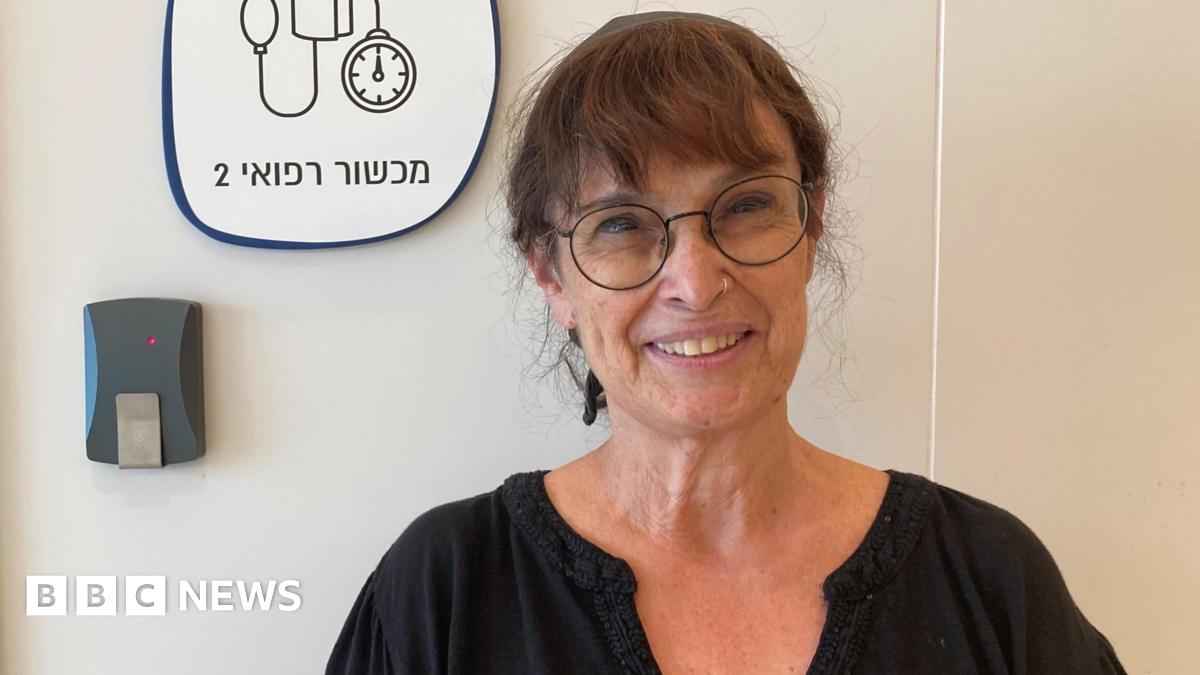When the first hostages are released by Hamas in Gaza, taken into Israel and transferred by helicopter to the Rabin Medical Center in Petah Tikva, Dr Michal Steinman will take them up to the sixth floor, swipe open the glass door and see them reunite with their closest family after more than 700 days in captivity.
“It is a privilege,” says the head of nursing. “These are the moments, when I’m 70 or 80, these are the two or three moments I will remember. They symbolise so many values – as a nurse, as a mother, as a woman, as an Israeli.”
Twenty living hostages are due to be released under the terms of the agreement between Israel and Hamas. Several of them will be brought to this hospital.
It will be the third time that the hostages’ unit has gone operational. The BBC visited the unit on Saturday, when the medical team learned the identities of the hostages they would be treating.
“There is no such field as captivity medicine, and we are inventing it,” said Dr Steinman told the BBC on Saturday, after the team learned the identities of the hostages they would be treating.
The staff have learned two big lessons from the two previous hostage releases in November 2023 and January this year, she says.
The first is to be “a medical detective”, to try to understand what happened in those long days and nights of captivity.
With earlier, often emaciated, shackled, beaten hostages, “they had things in their blood exams, in their enzymes, that we couldn’t understand”.
They also have learned that symptoms may not present for days or weeks.
“Captivity does things to your body that your body remembers. You see all these layers. It takes time to see what happened to their bodies, to their souls,” she said.
“We’re still taking care of the hostages who came back in January and February, and every week we discover new things.”
